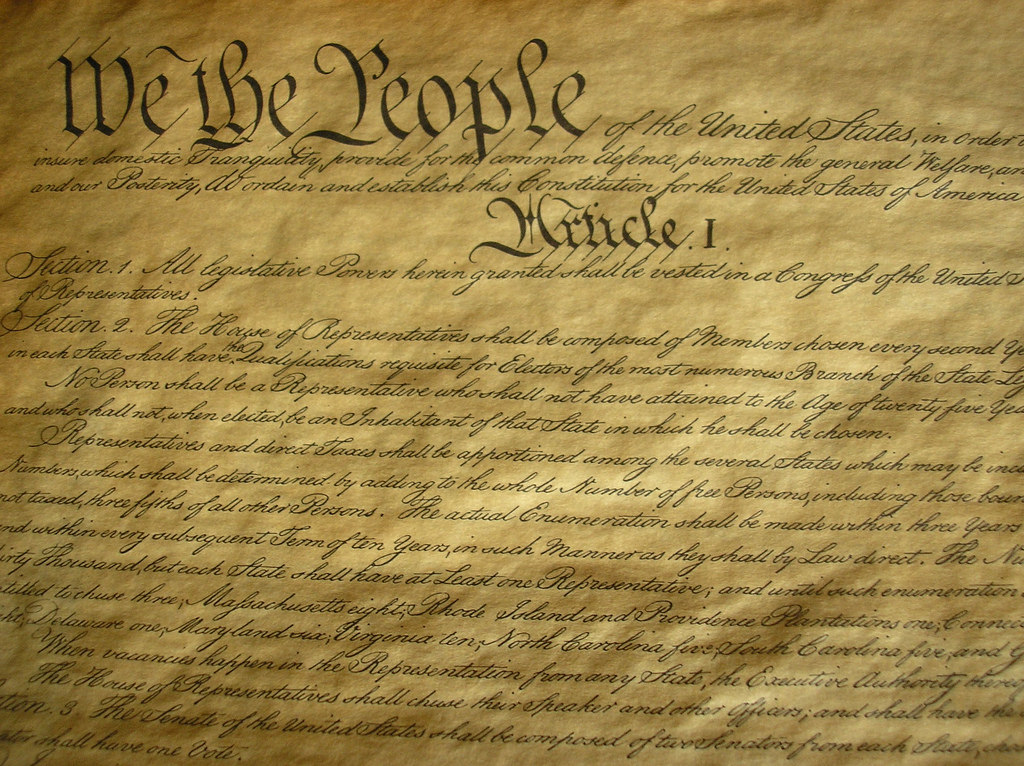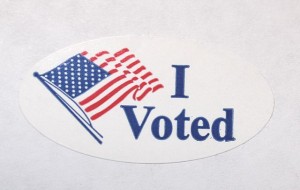“I don’t actually support electors deviating from their moral obligation unless they have an overwhelming reason.
But reasons like the threat of foreign involvement in our election. Or a candidate refusing to live up to the Foreign Bribery clause by disassociating himself or divesting himself from assets that could be affected by foreign governments, raise exactly that reason.
Now we have a system. The system is the Electoral College, which has the right to make a judgement at the end whether to confirm the democratic result. And what I think would happen here is not that the electoral college would choose, but that it would go to Congress and congress would have to weigh the reasons that raised this issue and make a decision one way or the other.” – Lawrence Lessig
Full Transcript of Lessig on MSNBC below. (The host is paraphrased, since he takes too long to ask what could have been short simple questions:)
On Facebook yesterday, I notice that Lawrence Lessig said: “We believe there are now at least 20 GOP electors considering a vote of conscience. Last week, there was 1.”
Then I saw that Lessig went on MSNBC to discuss the concept of “Freeing the electors to vote their conscience.” in “Lessig: Electors May Have ‘Moral Reason’ Not to Pick Trump.”
Turns out, Lessig has identified a group of at least 20 Republican electors that are willing to exercise their Constitutional freedom to vote their conscience.
As Lessig explains:
“That freedom comes from the Federal Constitution, of course, as Justice Jackson said in Ray vs. Blair, these are Federal officials, and the States could try to restrict them, but that case makes clear, the Framers to exercise their independent and non-partisan judgement about who to vote for.”
Transcript of rest of interview:
Host: Why did they find it constitutional that states could do this?
Lessig: Well what the court said in Ray vs. Blair was that while the states could not legally force electors to vote one way or another, they were free to create a moral obligation to say that they would pledge to vote one way or another. And I think that that’s the right rule. They can’t be forced by law, but they have an ethical obligation, once they take the pledge, and they must vote that way, unless there’s an overriding moral reason not to vote that way. And the disqualification, or the failure of a candidate to live up to the qualifications would be one such reason. And that’s exactly the issue that’s raised by this election.
The electoral college was made for this election precisely.
Host: What do you want to see happen? (Describes complicated scenario that makes any viewer’s eyes glaze over.)
Lessig: Our goal is to let the electors exercise their judgement, and at least 37 electors will make the judgement not to support Donald Trump. And if that happens, then of course, it goes to the House, and the House has to pick among the top three candidates.
A week ago. There was 1 elector who had come out and said that he was not going to vote for Donald Trump. What we believe, the three groups that I am aware of that are advising and supporting Republican electors is that there is at least 20 right now. Some tell me that the number is higher than that; it should more like 30, but I feel confident saying there’s at least 20.
Now, of course, if they don’t get to 37, I doubt any of them, beyond the one, Chris Suprun, who’s actually come out in public who’s gonna vote against Donald Trump. But if that number gets to 40, or around 40, then I think you’re gonna see a very interesting dynamic, as you see that there’s a reason for them to exercise their vote of conscience, which I think they are all struggling with right now.
Host: But these people weren’t elected? What if people got upset and “took it to the streets?”
Lessig: I agree that it’s a very serious difficult decision. Which is why I don’t actually support electors deviating from their moral obligation unless they have an overwhelming reason.
But reasons like the threat of foreign involvement in our election. Or a candidate refusing to live up to the Foreign Bribery clause by disassociating himself or divesting himself from assets that could be affected by foreign governments, raise exactly that reason.
Now we have a system. The system is the Electoral College, which has the right to make a judgement at the end whether to confirm the democratic result. And what I think would happen here is not that the electoral college would choose, but that it would go to Congress and congress would have to weigh the reasons that raised this issue and make a decision one way or the other.
Host: And you would be comfortable with the House deciding to vote Trump in anyway? You would be OK with that?
Lessig: Absolutely. Of course. That’s the constitutional rule. The House gets to decide. And, of course, the Republicans have a significant advantage in that rule because The Constitution says that each state gets one vote, and there are more Republican states than Democratic states. But that’s the process, and all we’re defending, is the constitutional right, which has been pretty well assumed by most who’ve looked at this question for some time, of these agents to exercise their judgement…
It is a real problem that this issue has not finally been resolved. The last time, Ray vs. Blair, is from the 1950s, when the court raised the question. But I think that we never thought it would be necessary until we had this election. And that’s why this is so important that we take seriously what in fact our constitution says about the right of these electors to be the emergency brake on the process of selecting a president.


